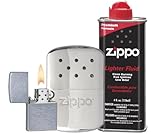Categories
EPA eliminates Obama clean water rule – Washington Examiner
The Trump administration has formally repealed an Obama administration rule defining what water bodies are covered under federal protections.
The Environmental Protection Agency and Army Corps of Engineer regulation delivers on a “key promise of the president,” Environmental Protection Agency Administrator Andrew Wheeler said at a Thursday event at the National Association of Manufacturers headquarters in downtown Washington.
Wheeler said the Obama administration’s rule had greatly expanded Washington’s reach over private lands.
“Their definition was so far reaching they needed to clarify in regulatory text that puddles were excluded,” he added.
The administration rule eliminates the 2015 Obama regulation, known as Waters of the U.S., or WOTUS. The rollback will remove the Obama-era protections for the nearly two dozen states, the District of Columbia, and the U.S. territories that still follow the 2015 rule. The WOTUS rule had been on legal hold in the rest of the states in the country.
The rollback is a victory for Republicans, industry groups such as the National Association of Manufacturers, and farming groups such as the American Farm Bureau, who staunchly opposed the Obama EPA’s rule as overregulation.
“On paper, I could see where a bureaucrat could cook it up,” Republican Sen. Mike Braun of Indiana told the Washington Examiner, talking about federal and state regulators implementing the 2015 rule.
“In practice, it was completely overshadowing all the efforts that have been made through no-till farming and conservation practices” that farmers already were doing, Braun said. Braun has introduced a bill with Republican Sen. Joni Ernst of Iowa to codify the Trump EPA’s move into law.
Environmentalists and former EPA officials, however, say the Trump administration’s moves will undercut water quality safeguards that keep Americans’ tap water clean and protect habitats.
The EPA’s next step is to finish a second regulation that will set the Trump administration’s own definition of waters covered under the Clean Water Act protections. The agency’s proposal would limit the types of waters covered, excluding all ephemeral streams and many wetlands.
Wheeler said that rule will be finalized in the winter.
For years, the Obama EPA rule “has been used by government agencies to punish farmers and private land owners with out-of-control fines and imprisonment for simply working to protect or better their property,” acting White House Office of Management and Budget director Russ Vought said in a statement.
But for states that want to protect their streams and wetlands, regulators will now be subject to ambiguous guidance, stemming back to a 2006 Supreme Court case, Betsy Southerland, former director of the science and technology office in the EPA’s Office of Water from 1984 to 2017, told the Washington Examiner.
And those states won’t have the resources to head off land developers, oil and gas pipeline developers, and miners from filling in streams or dredging wetlands, she said.
“Once these headwater streams and wetlands are destroyed, they’re gone forever,” Southerland added.
But Wheeler, speaking to reporters after the announcement, said state regulations and other EPA programs would cover water bodies excluded from the Trump administration’s new definition.
“This section of the Clean Water Act was never supposed to regulate all water in the entire United States. It was supposed to be navigable water,” Wheeler said.
He referenced his attendance at the Chesapeake Bay Commission’s annual meeting last week. “There’s a lot of programs that are protecting the Chesapeake Bay and the tributaries into the bay that may or may not be under waters of the U.S. definition but are still important, and we’re still working with our state counterparts to make sure that they’re protected,” Wheeler said.
The Chesapeake Bay Foundation, though, slammed the Trump administration’s rollback.
“These actions continue the Administration’s assault on clean water,” Lisa Feldt, the foundation’s vice president for environmental protection and restoration said in a statement. “The repeal ignores EPA’s own science and the lengthy and inclusive process that was used to develop the 2015 rule.”
Feldt added the Trump administration’s repeal will make the bay’s Clean Water Blueprint more difficult to achieve.



